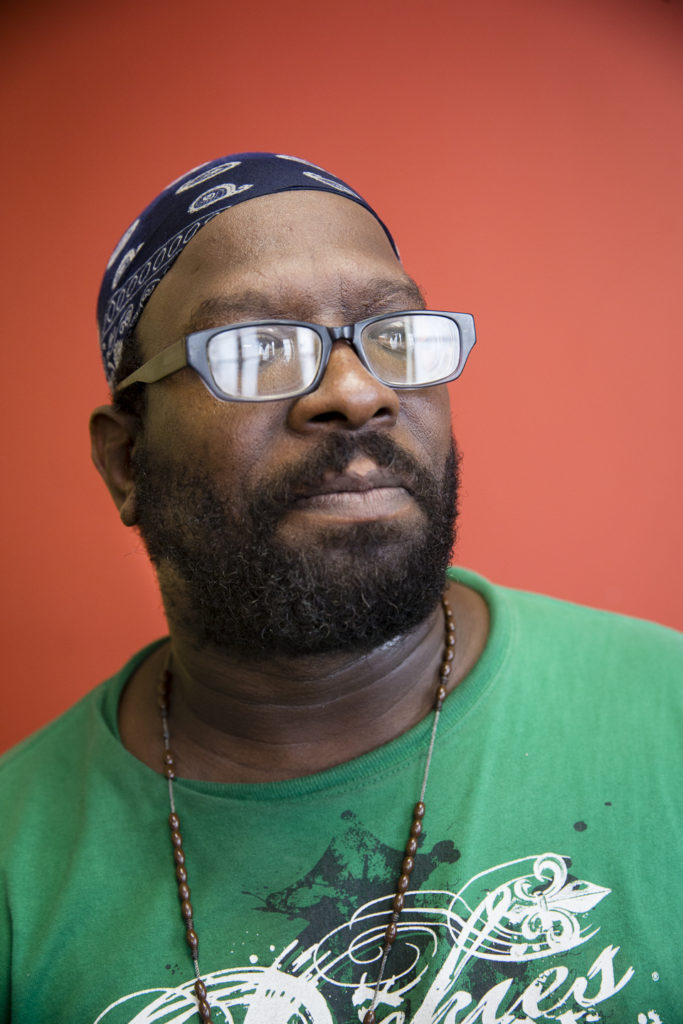Billy Davis has deep roots in San Francisco and the Bay Area. His family lived in the Bayview district on Third Street where his mother’s father was a shipyard worker until they moved over to Palo Alto in 1956, which is where Billy would grow up. Billy has fond memories of Potrero Hill, where he and his family would often spend weekends. He describes San Francisco as a kind of home base and decided to move here permanently from Palo Alto as an adult. Billy is 44 years old and has seen first-hand how much the city’s changed. He explained not only how much he has seen it change, but also how fast it’s changed. He recalls feeling as though it changed overnight. This sensation of lost time could be attributed to the battle Billy had with drugs and alcohol after arriving in the city. He describes drugs and alcohol as his two arch nemeses that would often defeat him, no matter how hard he tried to fight them. He eventually became homeless.
Billy was in and out of shelters as well as psychiatric facilities over the years. He couldn’t seem to find himself in a permanent or semi-permanent dwelling of his own. After living in so many shared spaces for so long, dealing with the various hardships attached, his way of thinking was transformed and he realized that he needed to try and get his own place. His goal was to find himself an SRO (Single Room Occupancy), which he currently has. He describes the feeling of independence it has given him as long as he is able to come up with the rent. He is indeed able to right now, due to the disability compensation he has been receiving since 1987 after a serious car accident that left him with warped eyesight. He has to wear thick lenses in his glasses in order to see. However, his warped eyesight doesn’t stop him from getting out and selling the Street Sheet.
“The Street Sheet is something that motivates me. It keeps me busy and I’m happy with it. I get to meet people. I get rejected sometimes but I find that it levels out. You get good and bad. People are people. Sometimes people don’t like to be talked to that’s why you have to approach with caution and say ‘Hey, can I talk to you about the Street Sheet?’ Some people say they don’t want to be bothered, get lost. I hear all these rejections but I take it in stride.”
Billy hasn’t chosen one specific place to sell the Street Sheet. He tends to move around, so as not to compete with street performers and musicians. He stays somewhere for a short period of time and then moves on. He sells the paper all over the city, sometimes selling 75 copies in a day. He sells them for $2 each, but gets bigger donations often times after a stranger stops to have a conversation with him. He finds that people do care about the cause more often than not and it’s something he really appreciates.
When asked him if he planned on staying with the Street Sheet, he said, “I will continue working for the Street Sheet with the Lord’s willing as long as I stay in good health.” ≠
Images by Robert Gumpert.


